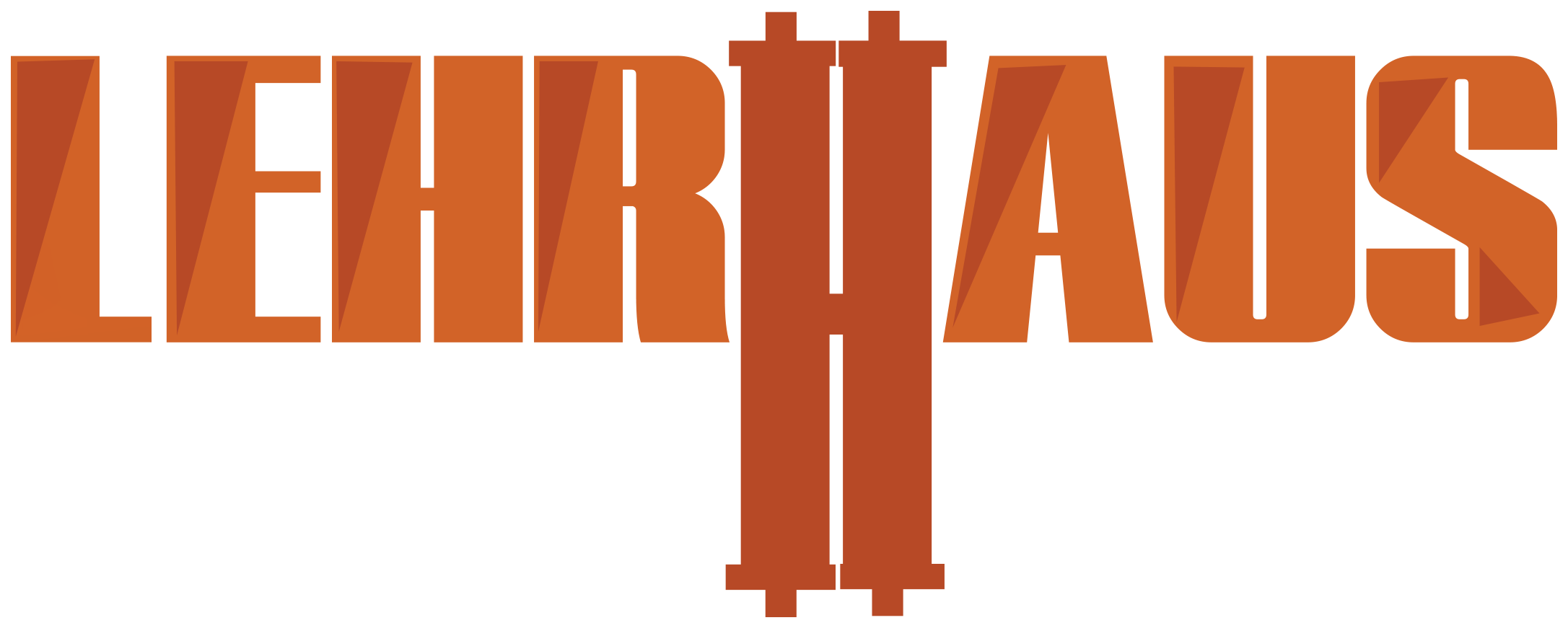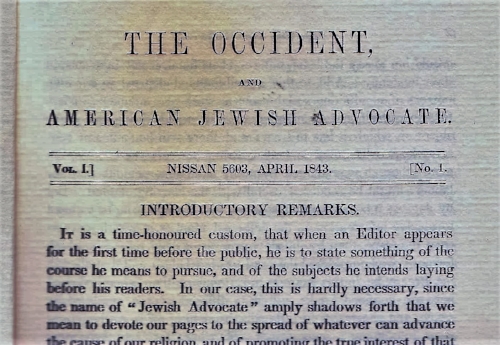
The Lehrhaus is a forum to generate thoughtful and dynamic discourse among individuals within the Orthodox community and beyond who enjoy exploring the depth and diversity of Jewish ideas. It provides rigorous content and encourages vibrant discussion. It harnesses the power of the Digital Age to reinvigorate and perpetuate the great Jewish conversations of our times.
Editors’ Introduction
With these words, published in April 1843, Isaac Leeser launched The Occident. This Philadelphia-based publication inaugurated a religious periodical tradition among American Jews that is now well into its second century.
There is something paradoxical about launching a brand new publication that claims to be part of that English-speaking tradition. On the one hand, Lehrhaus shares much in common with the numerous literary projects that emerged in the intervening years: a desire to foster a revival, to become the platform for the exchange and articulation of ideas, to create a common language for Jews with shared interests. On the other hand, its creation implies that all that has come before it is incomplete, that something new is needed. And so, like Leeser in his time, Lehrhaus must state something of the course we will pursue and of the subjects we intend to lay before the reader.
Here is our mission: Lehrhaus is a forum to generate thoughtful and dynamic discourse among individuals within the Orthodox community and beyond who enjoy exploring the depth and diversity of Jewish ideas. It provides rigorous content and encourages vibrant discussion. It harnesses the power of the Digital Age to reinvigorate and perpetuate the great Jewish conversations of our times.
Torah rests as the center of this project. Leeser also intended to “devote our pages to the spread of whatever can advance the cause of our religion.” Likewise, Lehrhaus, by its very name, intends to be part of a much older tradition: a house of learning, a beit midrash, a place where scholars and writers can help create and shape communal conversations. Our contributors—comprising a diverse array of writers, teachers, and artists—will offer commentary on texts and events, past and present, produce fresh scholarship, and explore new vistas in the arts.
In other respects, we part ways from the nineteenth century journalist and polemicist. In that time, Leeser proclaimed that “we have opinions of our own which we shall not hesitate to avow with becoming firmness upon every proper occasion.” Not so here. Lehrhaus’s role is not to take sides on controversial matters. Rather, our writers probe issues and help navigate a thoughtful course.
To a certain extent, Lehrhaus’s mission is fastened tighter to a more recent link in this chain. In the 1950s, Rabbi Norman Lamm led a group of the Rabbinical Council of America’s finest in founding Tradition. These young and determined Orthodox thinkers and writers spoke for “an Orthodoxy which has opened the channels of communication with the contemporary generation, so that the Tradition in all its fullness and beauty and holiness can now be presented to those Jews who sincerely are groping for direction and meaningfulness.” These individuals outpaced Leeser and other predecessors in both Jewish and scholarly training. And, unlike Leeser, they sought to bring these two realms into a more unified conversation.
Several years later, the Agudath Israel sensed that same urgency to speak from the “mind and heart.” In 1963, and in the name of the “decisive majority of the acknowledged Torah Sages of our time,” the Agudath Israel launched the Jewish Observer to encourage and inspire its own adherents. Less interested either in unifying realms or in academic scholarship, the Agudah’s enterprise was still a very successful attempt to convey the very best ideas that its leaders had to offer to like-minded Orthodox Jews.
In June 1989, Rabbi Lamm, responding to a query from Ludwig Jesselson, described an agenda for the “Advancement of Centrist Orthodoxy,” which included Rabbi Jacob J. Schacter and YU’s Torah u-Madda Project, an annual scholarly journal by that same name and the soon-to-be-inaugurated think-tank, the Orthodox Forum. On that occasion, Rabbi Lamm emphasized that it was crucial to be deliberate and thoughtful; any misstep would be a boon for detractors. “Centrist Orthodoxy is under attack and we need to respond courageously, effectively, and with dignity—and mostly by doing instead of whining.”
The values of this earlier generation resonate. Yet, the tendency among some to focus on defining distinctions between different forms of Orthodoxy and Judaism may at times seem polarizing. Lehrhaus hopes to draw a more eclectic group of writers and a wider swath of readers than did these postwar thinkers and scholars. Our editorial board is composed of a diverse collection of accomplished people, all role models in a complex Orthodox community. Lehrhaus is not a think-tank. We are eager to introduce the community not just to interesting subject matter, but also to interesting people. Lehrhaus will serve as as a thought provoking space, hosting a broad variety of online content. Contributors will be offered ample leeway to wield their creative powers.
The site is a product of its time, as each literary revival was a product of its time. This forum harnesses the power of the Digital Age to perpetuate and reinvigorate the great Jewish conversations. It is a forum for ideas and affords multiple avenues of expression. At present, this site will host long-form, accessibly written, scholarly articles; personal reflections and short commentary; musings related to events on the Jewish calendar; cultural criticism; original poetry; and more. We expect to add more features as Lehrhaus develops, potentially including podcast series, video content, and forums for communities to interact in real time with our contributors.
Lehrhaus, then, can trace its lineage back to the first Jewish literary revival in the United States, but remains a product of its particular time and place, possessed, like all other incarnations, of its own noble cause. We therefore hope that readers will engage critically with all that Lehrhaus has to offer. Please consider writing. Please share our content on Facebook and other social media. Print it out for Shabbat reading, and discuss it with family and friends.
Most of all, we invite you to participate in this newest incarnation of a longstanding conversation.












 Site Operations and Technology by The Berman Consulting Group.
Site Operations and Technology by The Berman Consulting Group.